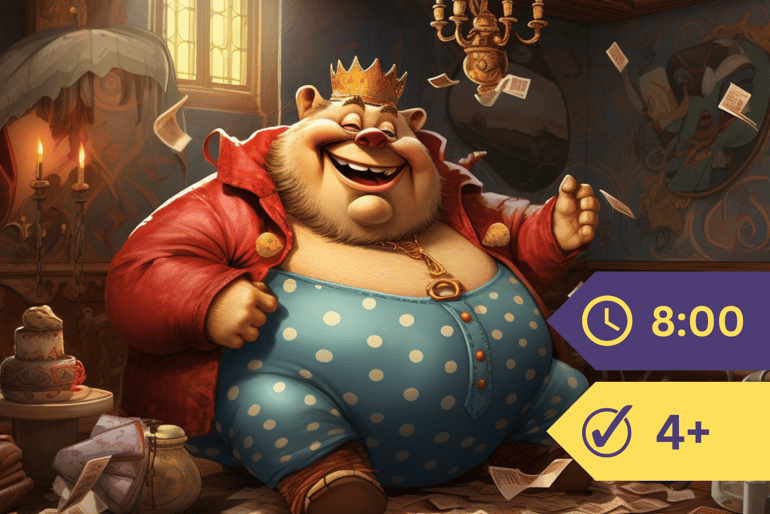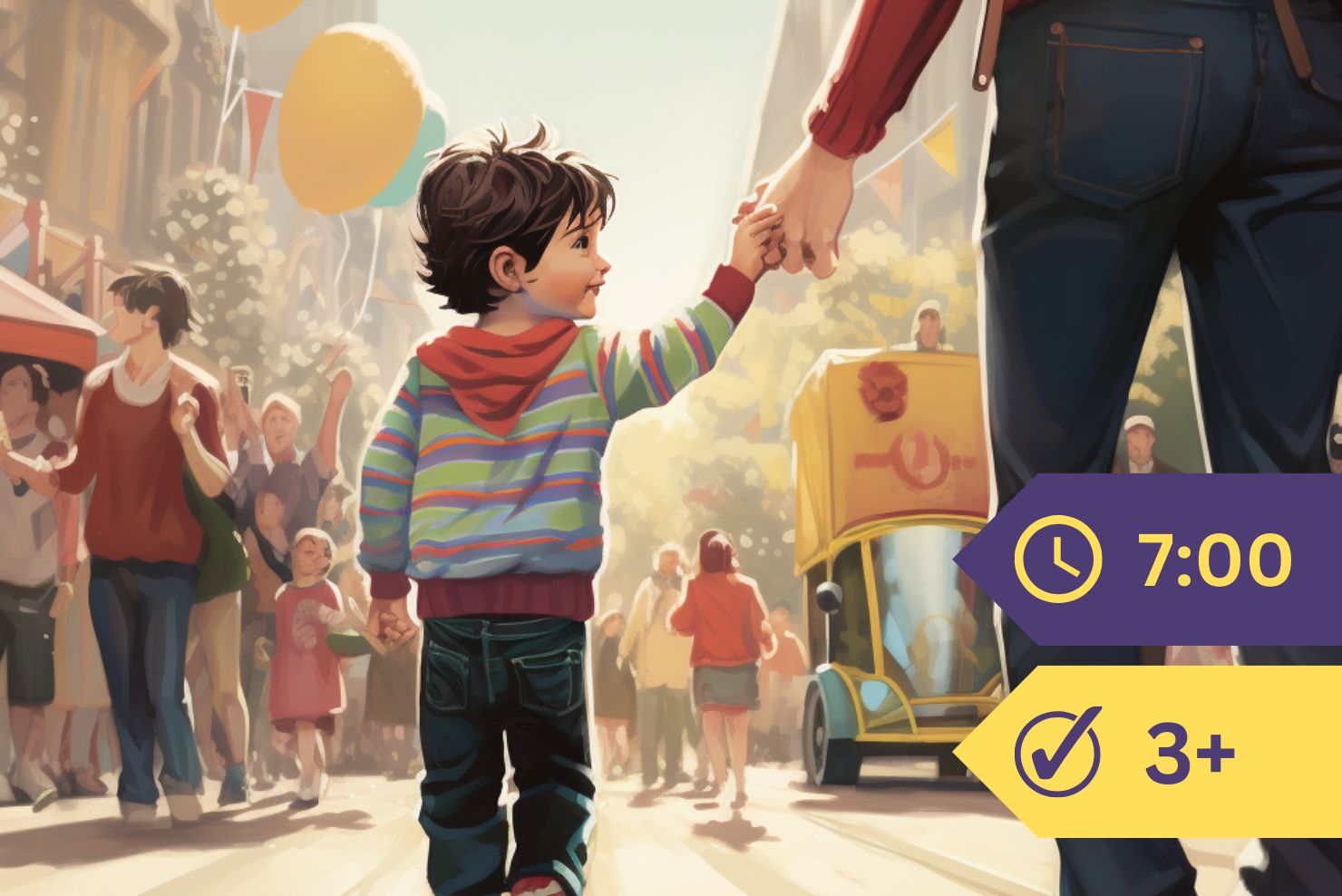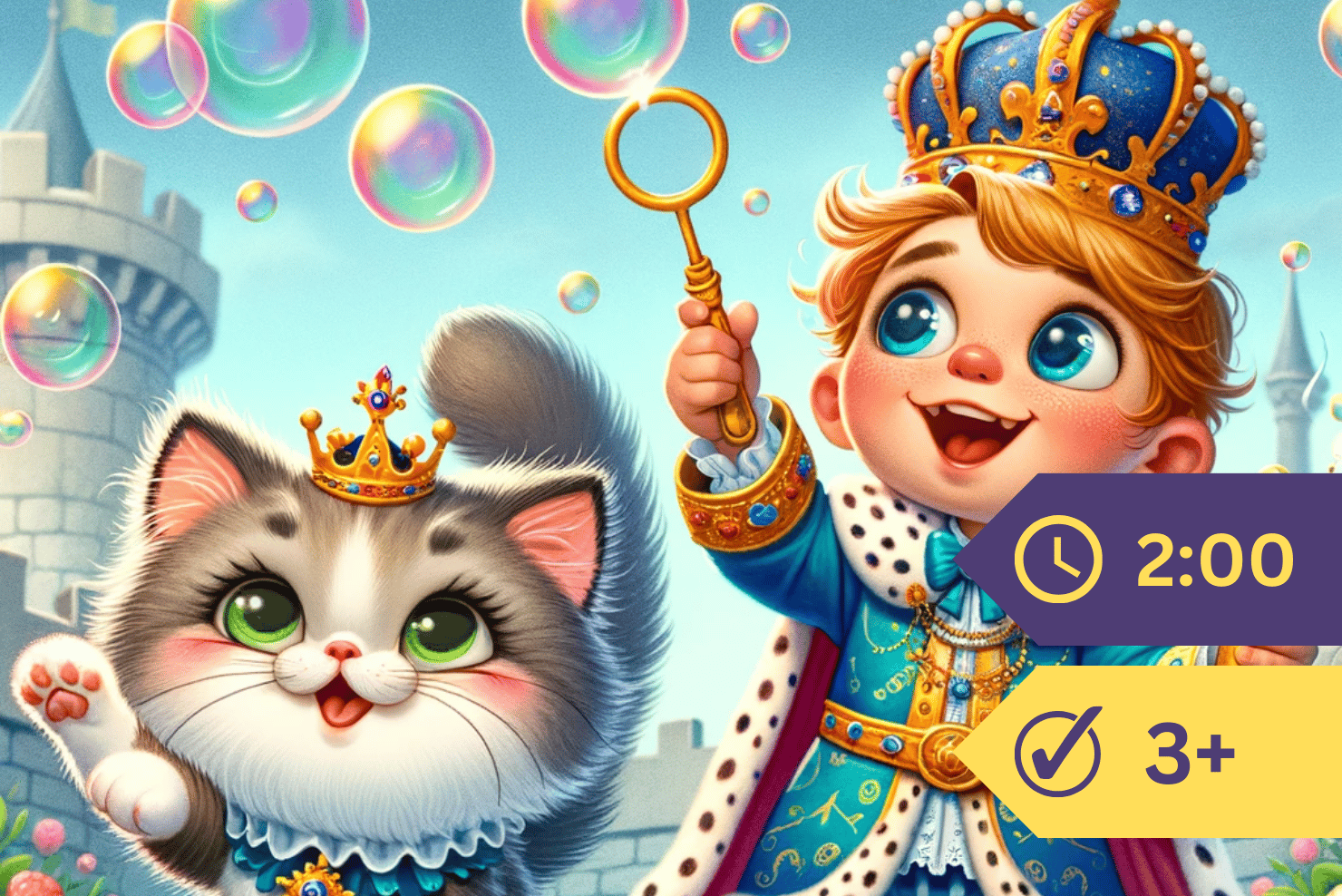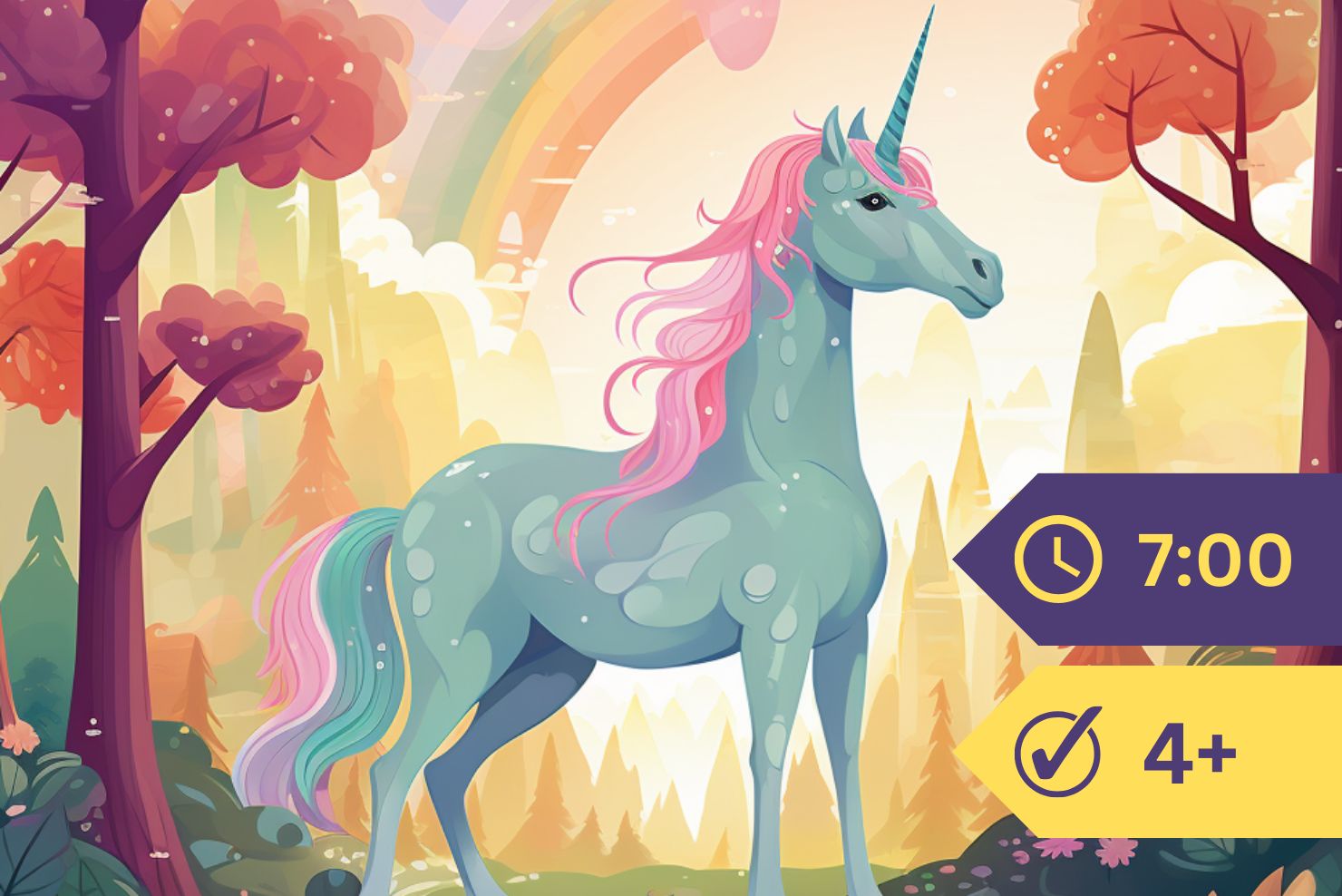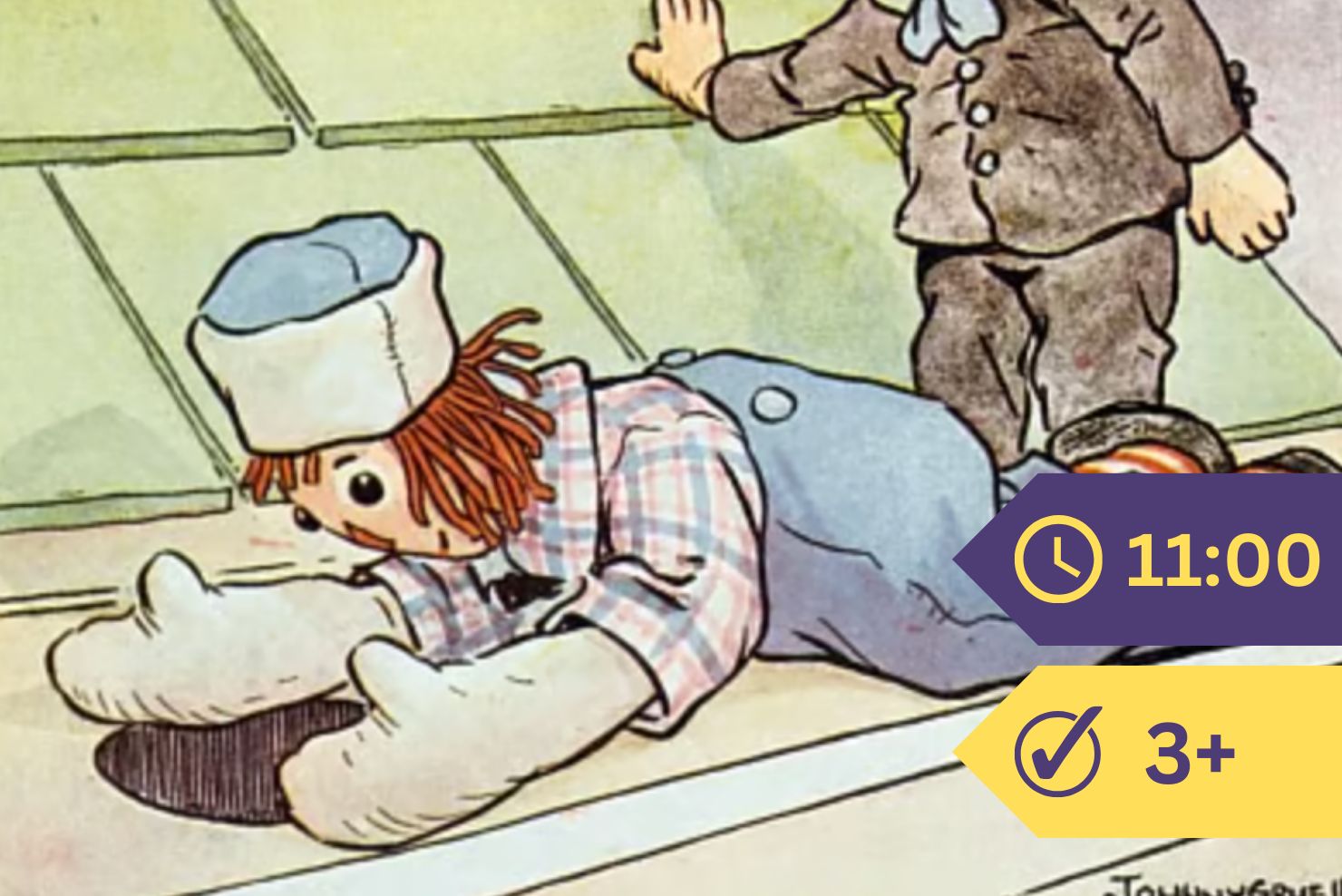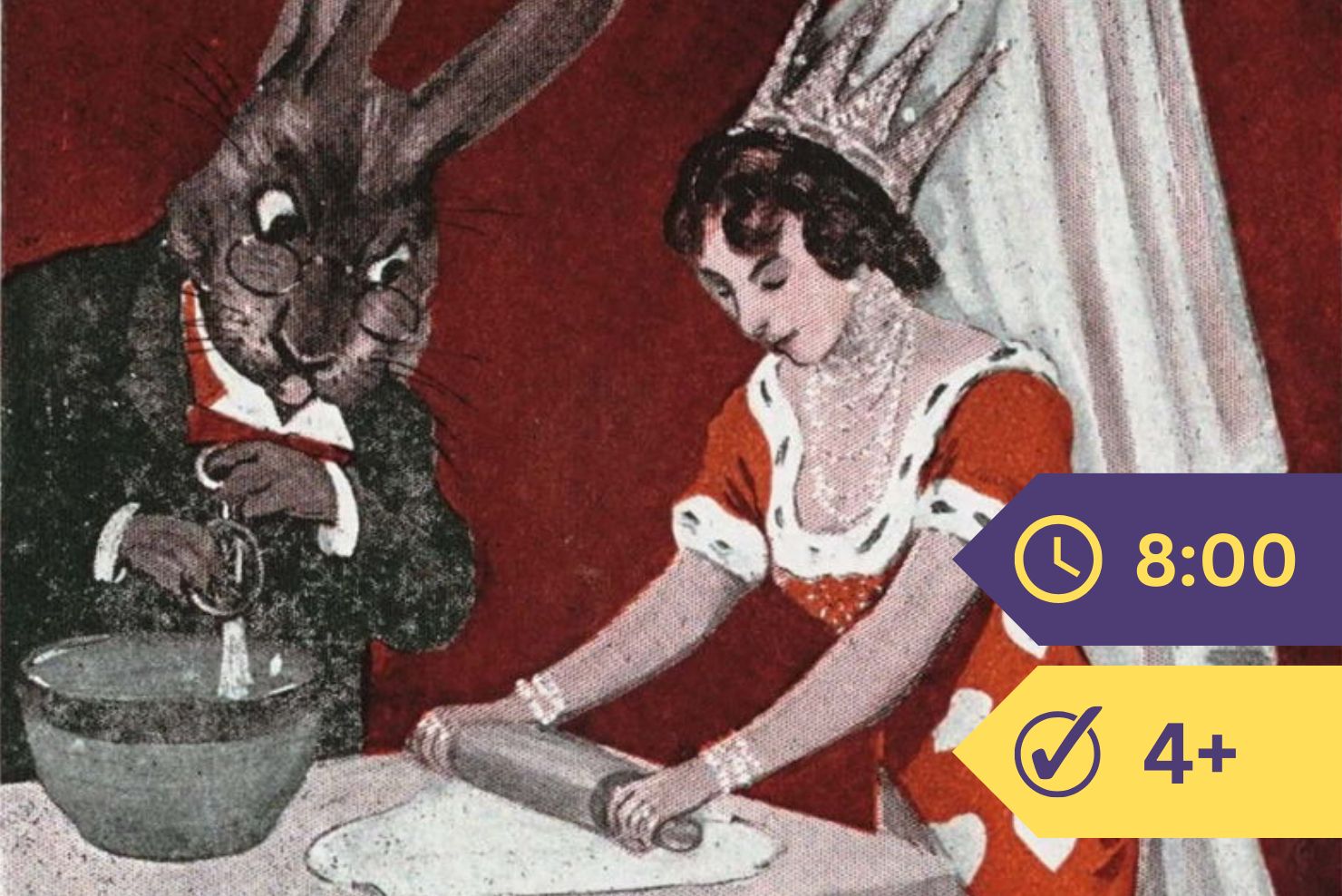Uncle Wiggily Longears, the nice old rabbit gentleman, was sitting in an easy chair in his hollow-stump bungalow, one day, looking out of the window at the blue sky, and he was feeling quite happy. And why should he not be happy?
Nurse Jane Fuzzy Wuzzy, his muskrat lady housekeeper, had just given him a nice breakfast of cabbage pancakes, with carrot maple sugar tied in a bow-knot in the middle, and Uncle Wiggily had eaten nine. Nine cakes, I mean, not nine bows.
“And now,” said the bunny uncle to himself, “I think I shall go out and take a walk. Perhaps I may have an adventure. Do you want any perfume, or anything like that from the store?” asked Mr. Longears of Miss Fuzzy Wuzzy.
“No, thank you, I think not,” answered the muskrat lady. “Just bring yourself home, and that will be all.”
“Oh, I’ll do that all right,” promised the bunny gentleman. So away he hopped, over the fields and through the woods, humming to himself a little song which went something like this:
“I’m feeling happy now and gay,
Why shouldn’t I, this lovely day?
’Tis time enough to be quite sad,
When wind and rain make weather bad.
But, even then, one ought to try
To think that soon it will be dry.
So then, no matter what the weather,
Smile, as though tickled by a feather.”
Uncle Wiggily felt happier than ever when he had sung this song, but, as he went along a little further, he came, all at once, to a very nice house indeed, out of which floated the sound of a sad voice.
Uncle Wiggily was surprised to hear this, for the house was such a nice one that it seemed no one ought to be unhappy who lived there.
The house was made of gold and silver, with diamond windows, and the chimney was made of a red ruby stone, which, as every one knows, is very expensive. But with all that the sad voice came sailing out of one of the opened diamond windows, and the voice said:
“Oh, dear! It’s gone! I can’t find it! I dropped it and it rolled down a crack in the floor. Now I’ll never get it again. Oh, dear!”
“Well, that sounds like some one in trouble,” said the bunny uncle. “I must see if I cannot help them,” for Uncle Wiggily helped real folk, who lived in fine houses, as well as woodland animals, who lived in hollow trees.
Uncle Wiggily hopped up to the open diamond window of the gold and silver house, with the red ruby chimney, and, poking his nose inside, the rabbit gentleman asked:
“Is there some one here in trouble whom I may have the pleasure of helping?”
“Yes,” answered a voice. “I’m here, and I’m surely in trouble.”
“Who are you, and what is the trouble, if I may ask?” politely went on Uncle Wiggily.
“I am the king,” was the answer. “This is my palace, but, with all that, I am in trouble. Come in.”
In hopped Uncle Wiggily, and there, surely enough, was the king, but he was in the kitchen, down on his hands and knees, looking with one eye through a crack in the floor, which is something kings hardly ever do.
“It’s down there,” he said. “And I can’t get it. I’m too fat to go through the crack.”
“What’s down there?” Uncle Wiggily wanted to know.
“My money,” answered the king. “You may have heard about me,” and he recited this little verse:
“The king was in the kitchen,
Counting out his money;
The queen was in the parlor,
Eating bread and honey;
The maid was in the garden,
Hanging out the clothes,
Along came a blackbird,
Who nipped off her nose.”
The fat man got up off the kitchen floor.
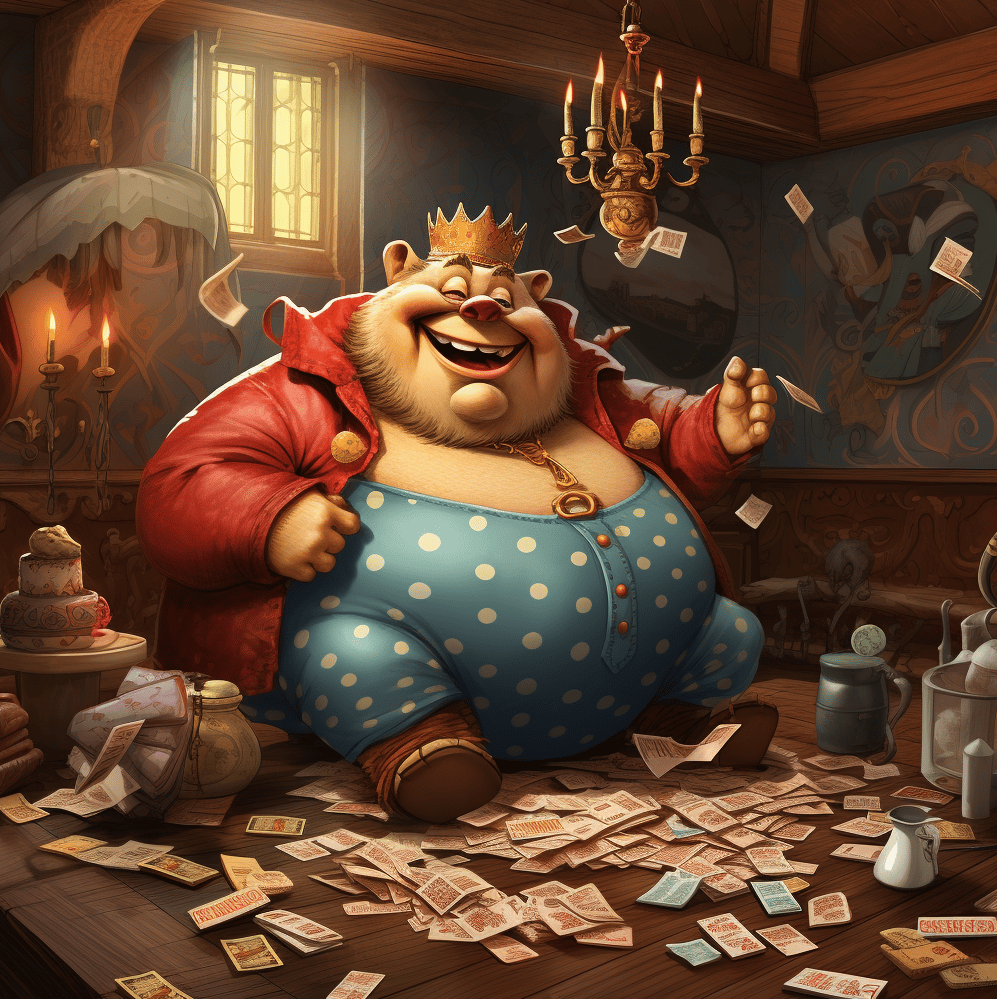
“I’m the king,” he said, taking up his gold and diamond crown from a kitchen chair, where he had put it as he kneeled down, so it would not fall off and be dented. “From Mother Goose, you know; don’t you?”
“Yes, I know,” answered Uncle Wiggily.
“I dare say you’ll find the queen in the parlor eating bread and honey,” went on the king. “At least I saw her start for there with a plate, knife and fork as I was coming here. And, no doubt, the maid is in the garden, where she’ll pretty soon have her nose nipped off by a blackbird.”
“That part happened yesterday,” said Uncle Wiggily. “I was there just after it happened, and I got Jimmie Caw-Caw, the crow boy, to fly after the blackbird and bring back the maid’s nose. She is as well as ever now and can smell all kinds of perfume.”
“Good!” cried the fat king. “You were very kind to help her. I only wish you could help me. But I don’t see how you can. My money, which I was counting, fell out of my hands and dropped down a crack in the floor. I can see it lying down there in the dirt, but I can’t get at it unless I move to one side my gold and silver palace, and I don’t want to do that. I don’t suppose you can move a palace, can you?” And he looked askingly at Uncle Wiggily.
“No, I can’t do that,” said the bunny uncle. “But still I think I can get your money without moving the palace.”
“How?” asked the king.
“Why, I can go outside,” said Mr. Longears, “and with my strong paws, which are just made for digging, I can burrow, or dig, a place through the dirt under your palace-house, crawl in and get what you dropped.”
“Oh, please do!” cried the king.
So Uncle Wiggily did.
Down under the cellar wall of the palace, through the dirt, dug the bunny gentleman, with his strong paws. Pretty soon he was right under the kitchen, and there, just where they had dropped through the crack, were the king’s gold and silver pennies and other pieces of money. Uncle Wiggily picked them up, put them in his pocket and crawled out again.
“There you are, king,” he said. “You have your money back.”
“Oh, thank you ever so much!” cried the king. “I’ll have the cook give you some carrots.” And he did, before he went on counting his money in the kitchen. And this time he stuffed a dish-rag in the crack so no more pennies would fall through.

